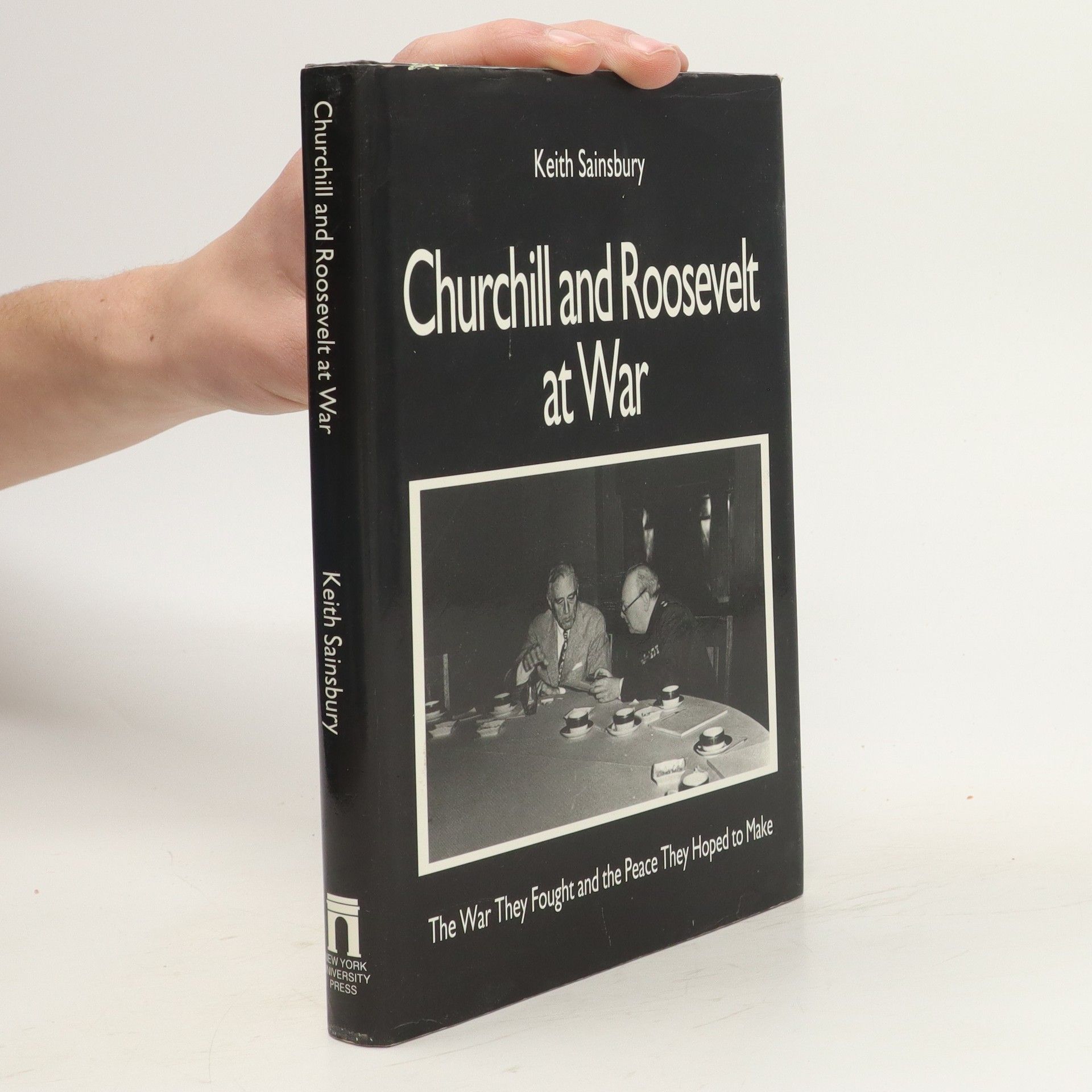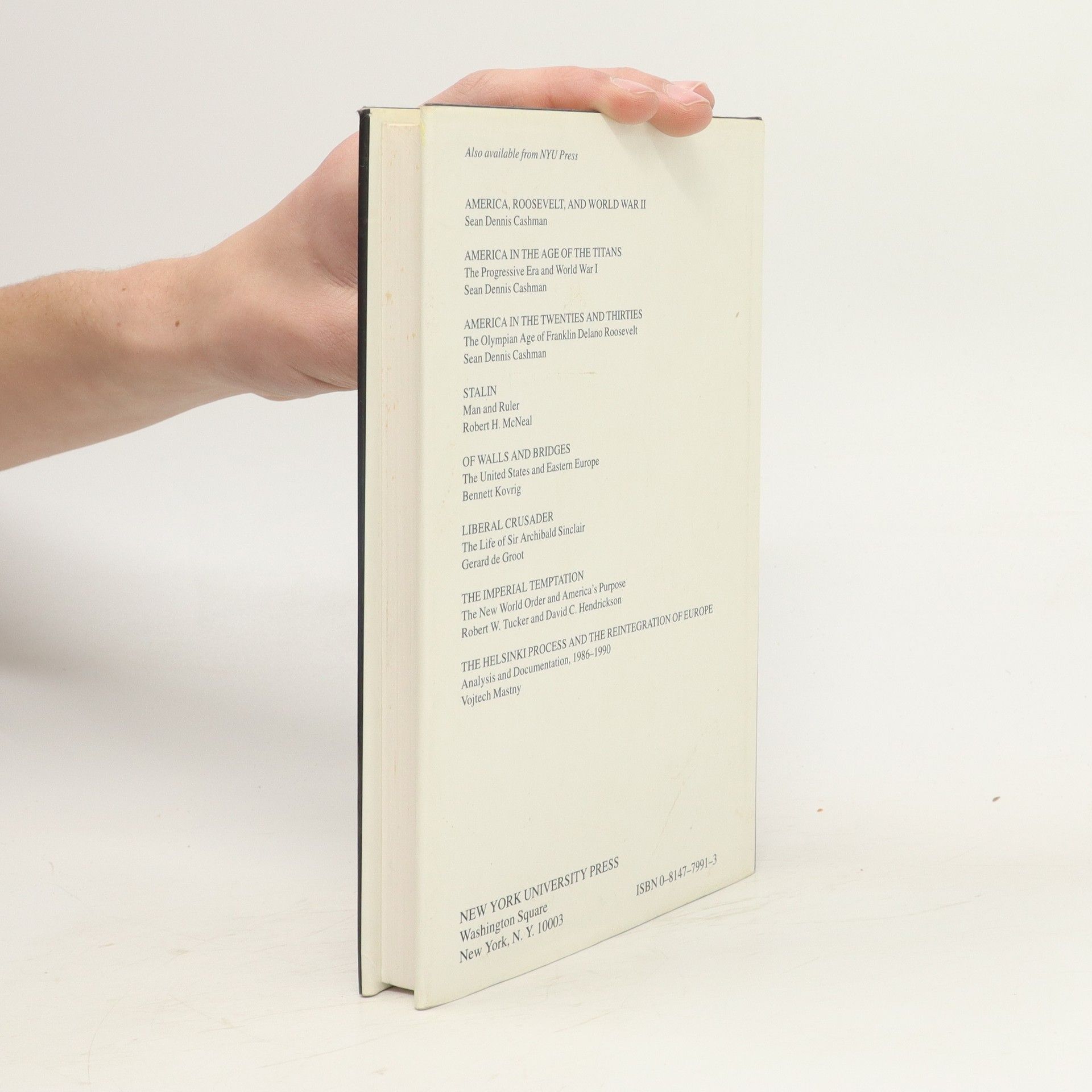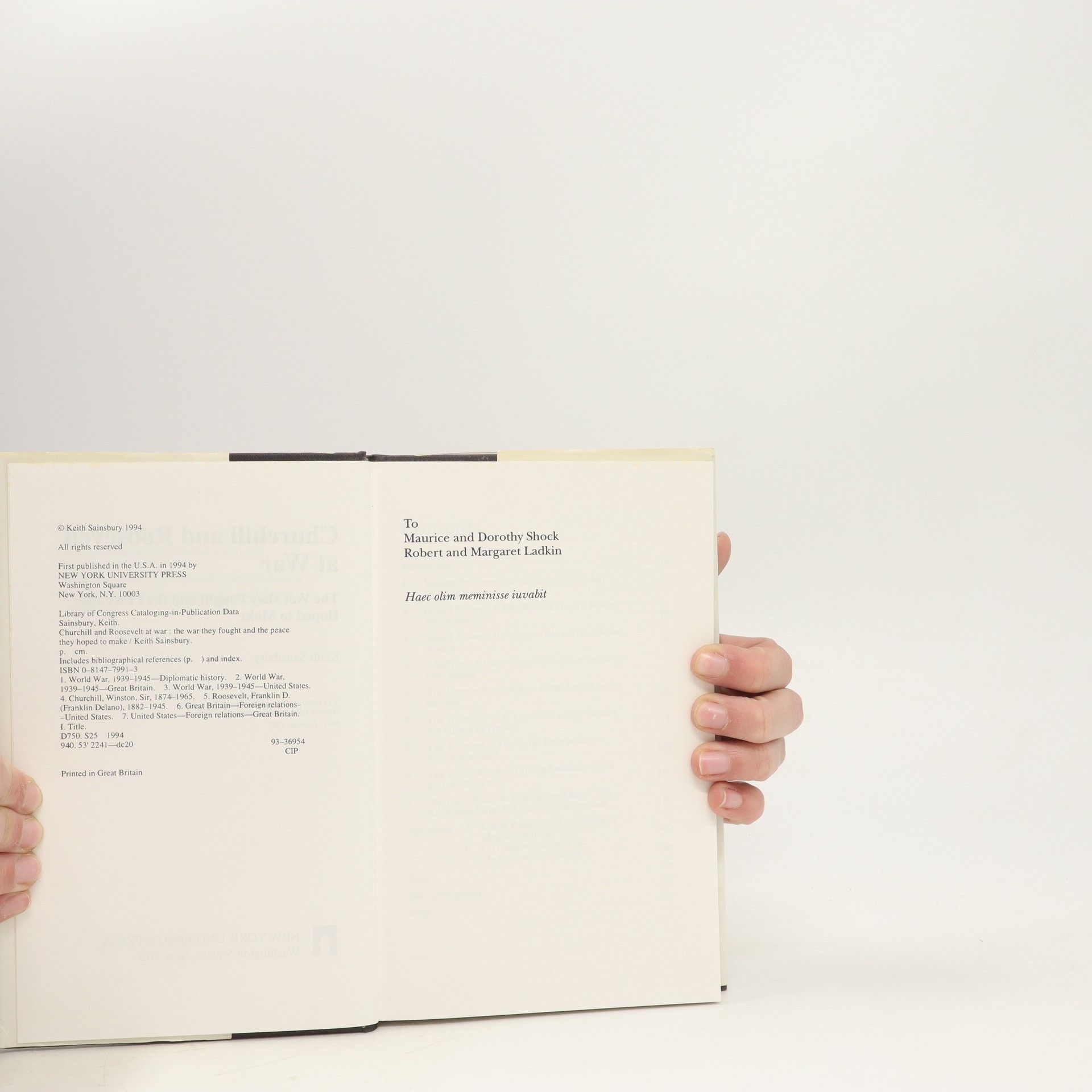Parametre
Kategórie
Viac o knihe
Winston Churchill and Franklin Delano Roosevelt, two of this century's most charismatic leaders, and men of vastly different temperament, together shaped Allied strategy throughout World War II. What began as a cordial friendship ended as a bitter association fraught with disagreement. While much has been written about both Churchill and Roosevelt, especially their written correspondence, Keith Sainsbury, in this compelling account, sheds new light on the dramatic implications of this immensely powerful wartime relationship. Allied strategy underwent a significant change over the six years of the war, from a largely British-sponsored Master Plan in the early years, to an American-sponsored Strategic Plan toward the war's close. A number of fundamental policy disagreements between Churchill and FDR helped to effect this transition, and to determine decisive events in the history of Europe, during and after World War II. Sainsbury points out that the two leaders' visions of post-war Europe were dramatically opposed. Churchill regarded the restoration of both France and Germany as vital to the maintenance of a stable European balance of power. FDR disagreed, seeking to destroy Germany and perceiving France as a minor power of little real account. This difference of opinion was made forcibly apparent in the handling of the Mediterranean operations. Contrary to Roosevelt's determination to commit no more than a bare minimum of U.S ground troops, Churchill's Mediterranean obsession resulted in Great Britain carrying a disproportionate share of the burden in Europe for the majority of the war. Churchill and Roosevelt at War is the first book to concentrate particularly on the Churchill-Roosevelt relationship in its entirety. Sainsbury's insights lend weight to his vigorous reexamination of well-known source material and enable the historian and the general reader alike to reassess this legendary association.
Nákup knihy
Churchill and Roosevelt at war, Keith Sainsbury
- Jazyk
- Rok vydania
- 1994
Doručenie
Platobné metódy
Navrhnúť zmenu
- Titul
- Churchill and Roosevelt at war
- Jazyk
- anglicky
- Autori
- Keith Sainsbury
- Vydavateľ
- New York Univ. Press
- Rok vydania
- 1994
- ISBN10
- 0814779913
- ISBN13
- 9780814779910
- Kategórie
- Svetová história
- Anotácia
- Winston Churchill and Franklin Delano Roosevelt, two of this century's most charismatic leaders, and men of vastly different temperament, together shaped Allied strategy throughout World War II. What began as a cordial friendship ended as a bitter association fraught with disagreement. While much has been written about both Churchill and Roosevelt, especially their written correspondence, Keith Sainsbury, in this compelling account, sheds new light on the dramatic implications of this immensely powerful wartime relationship. Allied strategy underwent a significant change over the six years of the war, from a largely British-sponsored Master Plan in the early years, to an American-sponsored Strategic Plan toward the war's close. A number of fundamental policy disagreements between Churchill and FDR helped to effect this transition, and to determine decisive events in the history of Europe, during and after World War II. Sainsbury points out that the two leaders' visions of post-war Europe were dramatically opposed. Churchill regarded the restoration of both France and Germany as vital to the maintenance of a stable European balance of power. FDR disagreed, seeking to destroy Germany and perceiving France as a minor power of little real account. This difference of opinion was made forcibly apparent in the handling of the Mediterranean operations. Contrary to Roosevelt's determination to commit no more than a bare minimum of U.S ground troops, Churchill's Mediterranean obsession resulted in Great Britain carrying a disproportionate share of the burden in Europe for the majority of the war. Churchill and Roosevelt at War is the first book to concentrate particularly on the Churchill-Roosevelt relationship in its entirety. Sainsbury's insights lend weight to his vigorous reexamination of well-known source material and enable the historian and the general reader alike to reassess this legendary association.



